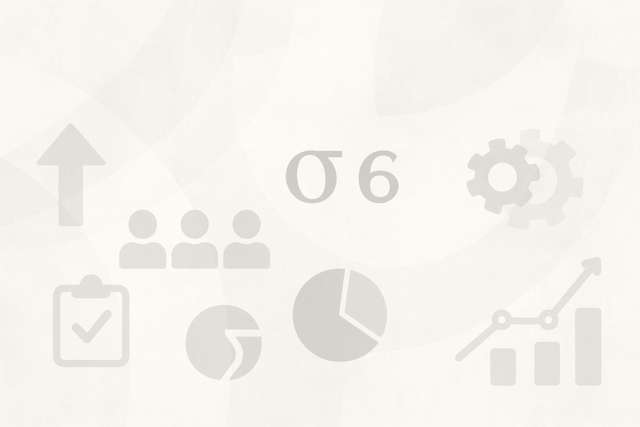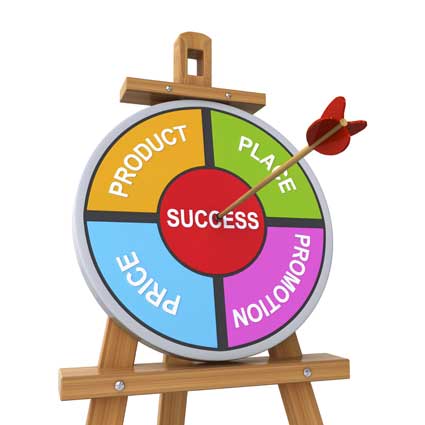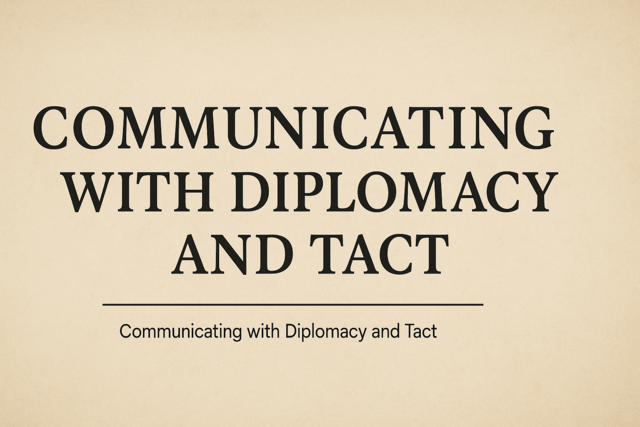Career management is a lifelong process of planning your career that includes establishing personal goals, then coming up with strategies to achieve them. Career management can start as soon as high school, before your career actually starts. It can involve choosing a college and selecting a major. It can also start after you've completed your education and you begin to lay out a landscape for your career � and your life. It can also start in mid-life, even if you're already 10 or 20 years into your career field (or switching careers).
You can use the process of career management to get you where you want to go in your field. In addition, when done successfully, career management can provide you with a healthy work and life balance, fulfillment, goal achievement, and financial security.
What to Expect
Where Are You Right Now?
Perhaps you're a stay-at-home mom wanting to start a career. Perhaps you want to change careers or advance further in your current one. Maybe you've worked different jobs all your life without any one career path, and now you want to trade in some of the experience you've gained toward a brand new career. However, first you must determine where you are in order to gain the most benefits from what you learn.
Answer the questions below to complete a basic self-assessment.
1. What things are you currently doing to plan for, or advance, your career?
2. Why do you want a new career, or to advance in your current one � aside from financial reward?
3. Look at yourself now (career-wise). Where do you want to be in five years? Ten years?
4. What things do you feel that you need to improve about yourself to be more successful in your current or intended career?
5. Do you want to work long hours or do you want flexibility?
6. Do you prefer to serve others, be part of a team, or be the one in charge?
7. What obligations do you have right now that can hold you back from a career (or career change)? How can you find a support system to help you overcome them?
You can answer the questions above as briefly or as in-depth as you want, but the goal is to create a mission statement for yourself.
a) Where are you now?
b) Where do you want to go?
c) Then -- why and how?
You don't have to be career-specific at this point. In fact, it's better if you're not. Instead, this is a personal evaluation.
Listen, choosing a career is about more than choosing a job. In a way, it is a life mission. For example: "I want to be a doctor so I can work with children with late-stage cancers." That's much more than a job. That is a mission.
That said, take a few minutes to evaluate yourself. Jot down your mission statement for your career. If you're already mid-career, that's fine. Create a personal mission statement anyway that states what you want to do from this point forward.Then, we'll move on to the next step.
Assessing Yourself and Different Careers
How many people have you known over the course of your life who were unsatisfied with their careers � or unhappy with the type of work they did? It happens more times than we can count. A lot of people choose their career paths while they're in college, and sometimes what you think will be fulfilling when you're 21 isn't fulfilling anymore when you're 35 -- or 50. That is part of the reason there's a growing number of people starting second careers or going back to school to further their education.
A career assessment test measures your personality, as well as your interests, to determine what type of career best suits you. These tests can be administered to high school and college students, but also to adults who are looking for career alternatives. Of course, the tests shouldn't be used as the only method to choose a career path. However, they can shed light on options you may have never thought of or considered. For someone who wants to start or change their career, it can be a helpful starting point.
There are a lot of career assessment tests out there that are offered by different companies and organizations. For example, The Jung Typology Test is a free online test that was created by Carl Jung and Isabel Briggs Myers. It's a well-respected test that will analyze your personality type, then help you discover careers most suitable for you.
If you decide to take a career assessment test, use it as one of many tools in deciding your career path. It should be a first step that opens the door to ideas and guides you to explore different avenues. However, the career path you take, and how successful you are in your career, is determined solely by you.
Considering Outside Help
When you're first considering starting a new career, you have a lot of options available to you. You can pick a field that you want to go into. For example: medicine. You can also pick a job within a field. Perhaps you want to be a nurse. Creating a career plan will lay out a list of goals that you need to achieve to get the first job that starts your career. You can start a career without creating a plan, but the plan will create the first steps of your success. It's the difference between taking a cross-country road trip with a map � or without. Traveling with a map makes reaching your destination quicker and easier.
Creating a Career Plan
Choosing your career goal is the first step in creating a plan. A career goal can be a certain job that you want to do, such as nursing. It can also be a field you want to work in, such as education. Perhaps you know you want a career in education, but you aren't certain what job you want to do. Creating your career plan can help you.
Exploring Jobs
Even if you already know what job you want to do in a certain field, exploring different jobs will help you see the opportunities available, then evaluate those opportunities to decide what's best for you. Different jobs may be better suited for you, and you haven't explored enough to realize it. The sky's the limit. Soar high.
That said, start out your career plan by exploring different jobs you're interested in and learning more about them. Learn the job title, the description of the job, the education and training you'll need, as well as the financial reward for the job. You can use classified ads to do this, as well as spending time researching different jobs in your preferred career field.
Using a nurse as an example, you can explore the different types of nursing careers open to you. You can explore home health care, neonatal nursing, surgical nursing, and the list goes on. You can also explore the differences between an LPN, RN, and nurse practitioner to get an idea of where you want your career to go, and what you'll have to do to get there.
The Difference Between Jobs and Careers
If you look it up in the dictionary, the word "job" has many definitions. It will also have many definitions for you over the course of your life, from the time you take your first job, until the day you retire. A job, as defined by this course, is: tasks or labor that you complete in exchange for a paycheck. In other words, it's work. You will have several jobs over the course of your life. However, the majority of people will only have one career. All those jobs you have will take place during � and as you advance in � your career.
Before we delve into career management and start with the first topic of creating a career plan, it's important that we review the basic differences between a job and your career.
|
Career |
Job |
|
The pursuit of achieving lifelong goals |
A means to earn money |
|
Requires special learning and the development of abilities that go beyond training |
Some education or training is sometimes required, depending on the job |
|
May involve risks, usually internal. Doesn't always mean stability. |
Stable for the most part. Risks are usually external and relate to relocation or layoffs due to change in demand. |
|
Long-term commitment (usually lifelong) |
Short-term commitment. You can always find another job. |
|
Income varies on value to society or a company. Salaries are common. |
Pay varies by job description and demand. Typically pays in hourly wages. |
How Jobs Fit Into Your Career Goals
In this plan, you will list career goals you want to achieve.Your goals may start out with furthering your education so you can get into the career field that interests you � or it may start with getting that new job that will either start or advance your career. For that reason, let's talk some more about jobs and how they fit into your career goals.
Of course, the road is your career.
Along the path of your career, you'll have several jobs as you advance within your career. Just as when you're on the road, there will be twists and turns. Sometimes you'll feel like your career is going full speed ahead. At other times, you'll feel like you're stuck in bumper-to-bumper traffic and not going anywhere.
In fact, the majority of people's career paths will probably end up looking something like this:
Making Career Decisions
Once you have a list of jobs, you can start to make decisions about which job is best suited for you. To do this, look at what you have to do to prepare for each job. Do you need special training? Perhaps an internship? Compare what you'll need to do for each job to your current situation, your interests, etc. Check out the job market in your area for each job and the time commitment (how much you'll be required to work). We've included a sample career plan in this section to help you evaluate the jobs and make a decision.
If you already know the job you want to do, still take the time to evaluate it. Make sure it's the right job for you, based on every aspect. For example, you may want to be a Sanskrit translator, but there may not be a school close to you that offers training. Instead, you may need to evaluate other languages, perhaps Arabic, or other job types that involve work involving Buddhism or Hinduism.
Take Action
Next, it's time to take action. It's time to start doing what it takes to get your career going and secure the job you want. Your next step may be enrolling in school. It may be applying for an internship, or applying for a new job within the company you already work for. The sample plan will help you. You'll even want to put a support system in place to help you on the path to your new career. Later in this course, we'll talk about mentors and how they can be part of your support system.
List Goals
Every major goal you set has smaller goals that must be accomplished to create the bigger goals. If, for example, going back to school is part of the action you need to take, that is a major goal. However, there are smaller goals that you must do to accomplish that major goal, such as testing, applying, getting financial aid, etc. If your major goal is applying to jobs, then you have smaller goals, such as putting together your resume, searching for available jobs, etc.
Below is a sample career plan. Keep in mind that if you already have the education, training, or experience in your career field (or have already decided your career goal), then this plan will not be for you. Instead, you'll want to create a career development plan..
How to Use the Career Plan
Once you have your career plan filled out, you have a list of the things you need to do and the goals you need to achieve to make your career happen. You don't need a career plan to start or have a career, but having a career plan will help you stay focused. When you stay focused and know what has to be done next to get to the next step, you'll be more successful and efficient as you work toward your goals.























